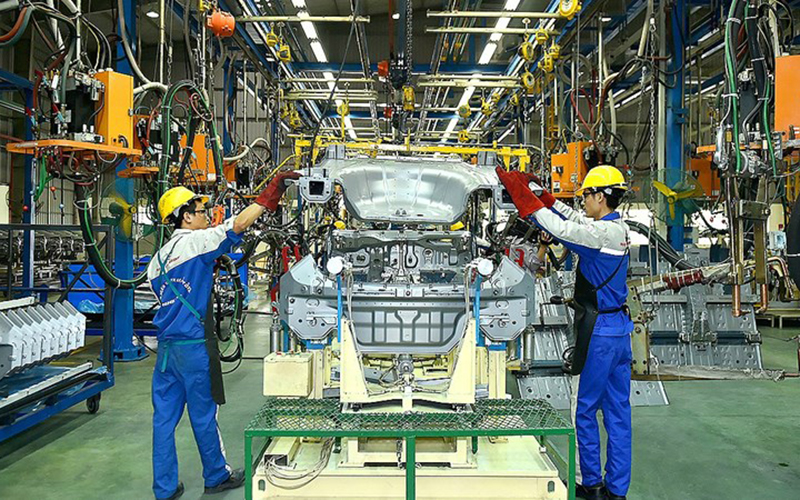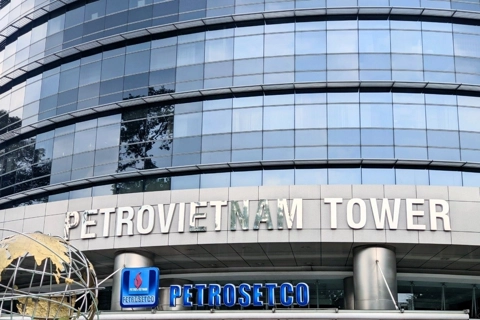Stimulus policies to beef up Vietnam’s automobile industry
Fitch Solutions has forecast that Vietnam's automotive market will remain robust in 2020, as an improved credit outlook and declining vehicle prices all support higher vehicle demand.
Vietnamese authorities are mulling a host of favorable policies to help the local automobile industry reduce costs, increase output and drive up demand in order to enhance their competitiveness.
| Caption: Vietnam’s passenger vehicle sales are expected to expand by 10.8% in 2020. |
According to the Ministry of Finance, it has worked on a special consumption tax policy to submit it to the government, proposing to reduce or waive the tax on domestically made car components to help local automobile manufacturers cut costs.
Besides, the ministry has also considered raising the tax on certain types of vehicles, which is expected to increase the prices of imported cars if it is approved.
Meanwhile, the Ministry of Industry and Trade (MoIT) has also proposed other support policies such as lower corporate income tax for the auto industry and its supporting industries.
There are also favorable policies on the cards for manufacturers of cars with nine seats or fewer, a capacity of more than 50,000 vehicles a year and able to export within five years. They include waiver of land rentals and usage fees, financial aid for technology transfer and access to low-interest loans.
The MoIT has also proposed reducing the luxury tax on local electric cars to 0% and refund the 10% VAT for equipment and machines imported to create fixed assets for firms in the supporting industries.
The ministry and the Vietnamese central bank have also been considering policies to increase demand for cars, such as lower loan interest rates for buying domestically produced cars.
Following ASEAN integration in 2018, the import tax on complete cars was cut to 0% within the bloc, and that had created more difficulties for the local automobile industry.
According to Do Thu Hoang, deputy general director of Toyota Vietnam, the biggest challenge is the small size of the market and output. Due to limited production, most manufacturers have to import parts, which result in very high costs for packaging, shipping and import duties. Currently, the cost of manufacturing autos in Vietnam is 10-20% higher than in Thailand and Indonesia.
Before 2018, when high taxes for imported cars existed, locally produced cars were still able to compete. Now the rate has been cut to zero, it is very difficult for car manufacturers in Vietnam, Hoang said.
If Vietnam doesn’t set attractive preferences, it will continue missing the opportunity to attract large investment projects to the automobile industry. This will also affect the domestic enterprises such as Thaco, Thanh Cong and VinFast.
Uptrend market projected
Production of cars in the country has been increasing since last year, with Truong Hai Auto Corporation expanding the capacity of its KIA car manufacturing plant from 20,000 to 50,000 a year and TC Motor's new factory slated to be completed this year with a capacity of around 100,000 cars.
Other companies such as Ford and Toyota have also expanded their capacity.
Inspection of imported cars will be less stringent, changing from batch to batch to particular models. Each model would need only one vehicle tested for emissions and safety.
According to the MoIT, the growth of the auto market has been better than expected in recent years, with a rate of 20-30% a year.
Fitch Solutions has forecast that Vietnam's automotive market will remain robust in 2020, as an improved credit outlook and declining vehicle prices all support higher vehicle demand.
“We forecast passenger vehicle sales to expand by 10.8% in 2020, following a 19.6% expansion in 2019. Thereafter we forecast new passenger vehicle sales to expand by another 10% in 2021 and for new passenger vehicle sales to average annual growth of 7.9% over 2022-2029,” Fitch analysts noted.













